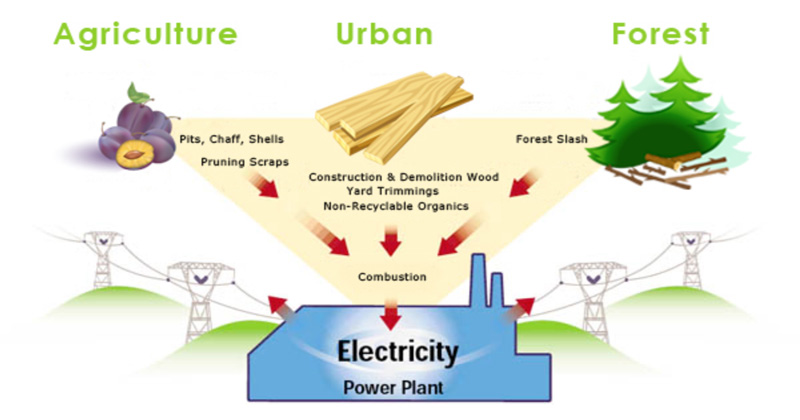Biomass renewable energy is energy produced from biomass, which is commonly used to make fuels, such as diesel and methanol. Biodiesel is made from biomass by taking waste material such as dead plants or animal manure and converting it into diesel fuel. Biomass can also be decomposed into methane gas, which is then used to create biomass power. The major advantage of biomass energy is that it produces carbon dioxide which is a cleaner fuel than other fossil fuels. In addition, biomass can be easily converted to usable energy through burning.
How Is Biomass Renewable Energy Compared To Fossil Fuels?
In comparison to fossil fuels, biomass produces a lesser amount of carbon dioxide, produces less pollution, and does not contribute to climate change. On the other hand, burning fossil fuels releases carbon dioxide, sulfur oxide, carbon monoxide, methane gas, and other greenhouse gases into the atmosphere which is potentially damaging to the environment. What is biomass renewable energy?
Biomass is considered an excellent source of alternative energy because it is considered a renewable resource. Unlike fossil fuels, biomass is constantly being renewed through biological processes like respiration and photosynthesis. This continuous biodegradability makes biomass a good and reliable alternative energy source. However, the use of biomass for energy production has some limitations. Below are some of the notable biomass renewable energy source disadvantages.
Carbon Dioxide Emissions:
Carbon Dioxide is a greenhouse gas that is believed to be one of the leading causes of climate change. Fossil fuels are much better alternatives as they do not produce carbon dioxide. Therefore, using biomass for energy production is not advisable because it does not work as well as other fossil fuels. Although biomass can be recycled to produce energy, the process is very inefficient. Carbon Dioxide is also emitted during combustion, which contributes to the accelerating increase in air pollution.
Energy Efficiency:
Due to the increased cost of energy, most of the biomass-to-energy systems are not efficient enough to be used as a renewable energy source. During combustion, there is a huge amount of energy that is wasted due to poor design. Biomass can be recycled for energy production but this process is very slow. This means that the systems are only capable of producing a small amount of energy. In addition, the efficiency of the carbon capture process is poor because the biomass does not decompose completely and release carbon dioxide when burned.
Limitations of Geothermal Heat:
One of the major disadvantages of biomass compared to fossil fuels is its limited supply. Biomass can only be extracted from living material that has a very low temperature. The temperatures can range from freezing to boiling. There are geothermal resources in the world that are extremely hot such as the geysers located in places like Africa and Australia. However, most geothermal heating systems require high temperatures of over 1000 degrees Fahrenheit. To put it simply, biofuels like geothermal heat cannot be used as a renewable energy source because they cannot be harnessed by living systems.
These are the major disadvantages of using biofuels as renewable energy sources. But what are some of the other advantages of using biomass? First of all, it can be easily converted into fuels which can be used in cars, trucks and other automobiles. Second, it is considered one of the green forms of energy because it does not contribute to global warming. Third, it releases carbon dioxide and some other greenhouse gases that have been proven to be a leading cause of global warming.
Biofuels like geothermal heat are not the only alternative sources of renewable energy like wind and solar power. You can also use biomass as a power which can be a better solution than fossil fuels because they are renewable. Plus, they are clean and green. And because it is generated naturally, you do not have to worry about harmful emissions. So if you want to help the planet without compromising your lifestyle, biomass might be a good choice for you.












